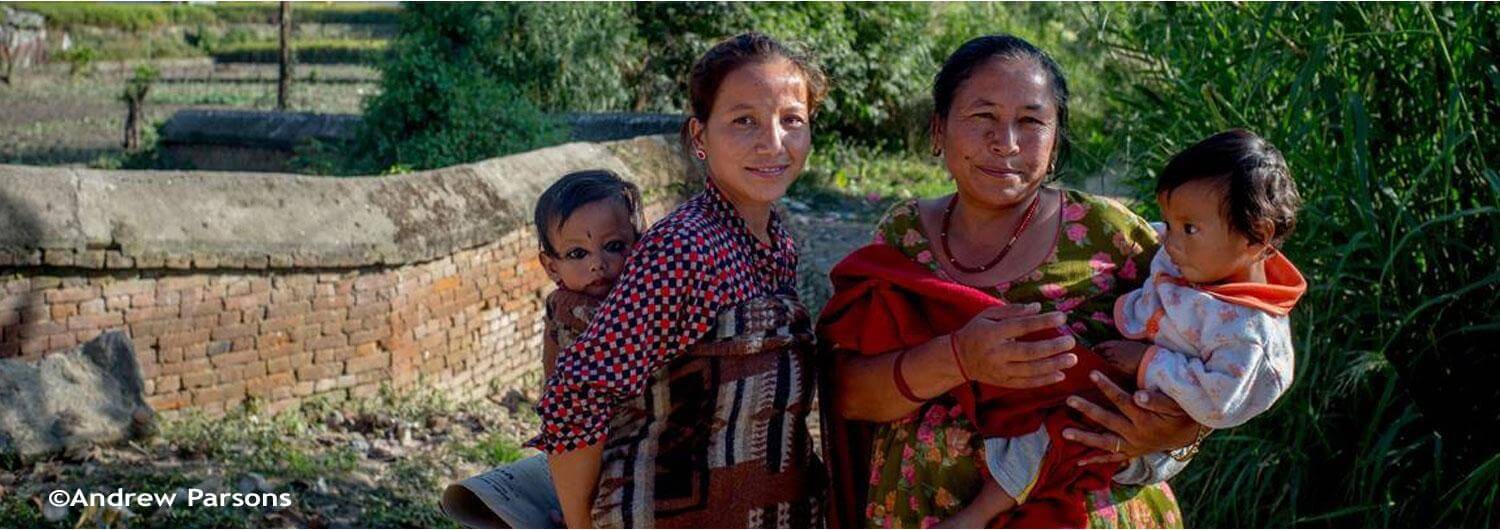Stories
Preventing long-term mental health issues in Nepal

"Life is very difficult now, we are living in temporary accommodation and it is not healthy for the twins"
Samshana Koju, 26, is the mother of ten-month old twin girls Ramanika and Samanika. Their home was destroyed in Nepal’s devastating earthquake and because of the heat in their temporary home, the daughters are often unwell.“When the quake happened we were all at home and then we had to run away quickly grabbing both of the babies. Life is very difficult now, we are living in temporary accommodation (made with corrugated metal) and it is not healthy for the twins.”
Action Against Hunger met the family when the girls were taken to Siddhi Memorial Foundation hospital, in Bhaktapur. Samshana was able to take part in counselling services organised by mental health counsellors working for Action Against Hunger and also attended workshops on hygiene and nutrition.
On the day this picture (see above) was taken, the girls were being discharged after four days in the hospital being treated for a fever.
“I am very worried about the future as we do not know when we will receive money from the government to rebuild our home,” Samshana told me. “My girls are so small. But while here I have had counselling which has made me feel a bit better. I’m breastfeeding my daughters but I have also learned about better nutrition for the children as they grow older and have more ideas on preparing healthier food.”
Samshana is just one of the thousands of people that Action Against Hunger has supported in the wake of the disaster which killed almost 9,000 people and damaged or destroyed almost 900,000 homes. We were already operating mental health and psychosocial services alongside malnutrition programmes in the south of Nepal and within weeks of the second quake, we expanded our mental health provision to the affected areas as well as organising shelter, cash for work, food provision and rebuilding water points.
Martin Rosselot, Action Against Hunger’s Nepal Country Director, says: “We are planning to train teachers in psychosocial support. We also plan to train up government staff so they can reproduce our programmes at scale. People seem very calm and resilient with the feeling of ‘This has happened, now I will organise myself and get on with life’ but behind this there is a lot of suffering and despair. Parents are wondering what they can do for their children, how they will rebuild their homes and how they can return to agriculture if they lost their tools. It will be five years minimum before reconstruction is complete, and this time is critical as many people are still living in bad conditions and their health is at stake. We here to make sure the people don’t suffer too much in the meantime.”
By Karen Attwood.
JOIN US
Donate now
Your donation will reach those who most need it
Become a member
Join the generation that can bring an end to hunger
Donate via SMS
send HAMBRE to:
- 28010(1.2€)
- 38010(6€)
- 38012(3€)
Full donation to our projects. Valid for Movistar, Vodafone, Orange and Yoigo